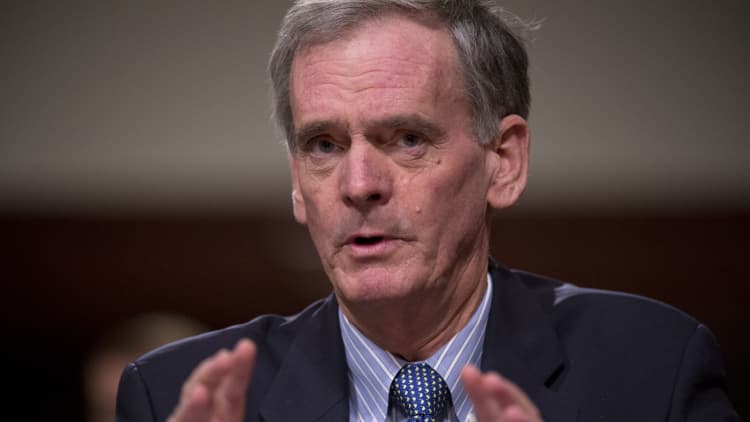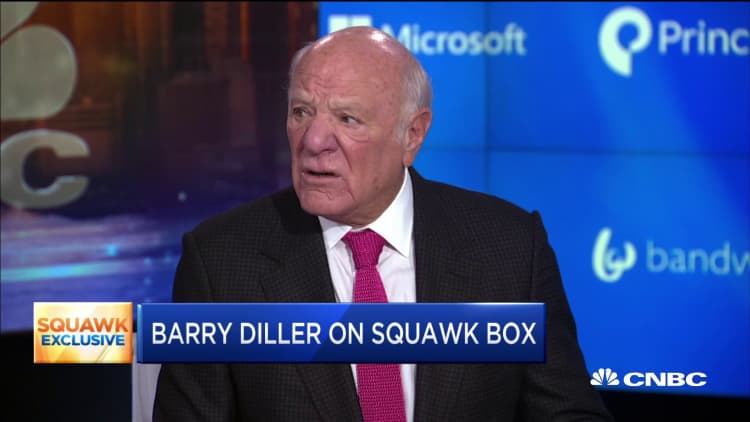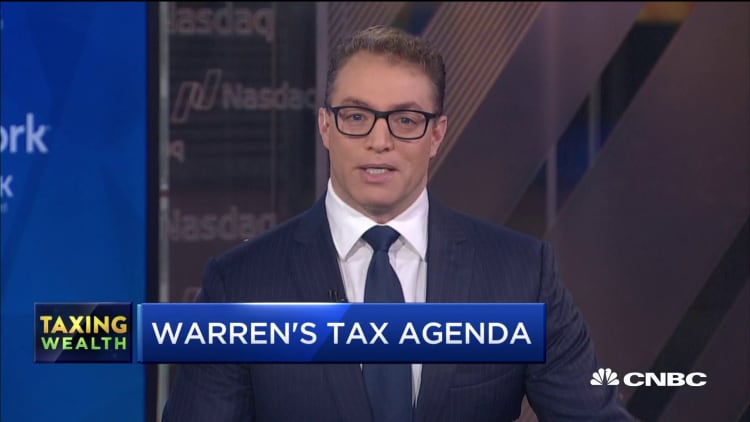Sen. Elizabeth Warren pledged Friday not to raise middle-class taxes to fund her "Medicare for All" plan, responding to pressure she faced as she emerged as a front-runner in the race for the 2020 Democratic presidential nomination.
In a new outline, Warren's campaign said her single-payer health plan would cost the country "just under" $52 trillion over a decade, which includes $20.5 trillion in new federal spending. It estimates the proposal would cost just less than the estimated $52 trillion in spending for the current system over 10 years.

The Massachusetts Democrat's campaign said her plan would give every American "full health coverage, and coverage for long-term care." It added that it would do so with "not one penny in middle-class tax increases" — a response to criticism from rivals such as South Bend, Indiana, Mayor Pete Buttigieg.
As she saw her support swell in national and early-state polls in recent weeks, Warren faced more pressure to explain about how she would fund a single-payer, government-run insurance system. While she had not answered specifically whether her plan would hike taxes on middle-class Americans, she repeatedly said it would cut costs by reducing spending on health care.
Warren's plan meets the demand for a sprawling system to cover all Americans amid widening complaints about what many consider an unfair and expensive U.S. health system. The seismic changes Warren seeks — from the elimination of private health care to tax hikes on corporations and the wealthy and even changes to military spending — will likely have a tough time passing the Senate, even if Democrats win a narrow majority in the chamber next year.
It would even face dim prospects in the Democratic-held House. On Friday, House Speaker Nancy Pelosi told Bloomberg News that she is "not a big fan of Medicare for All."

President Donald Trump and Republicans in Congress have pointed to costs as they argue against Medicare for All — even as Democrats who support single-payer system say their plan will not raise costs beyond the current system.
Warren's campaign says it will shift the burden of most health-care costs from consumers, in the form of spending such as premiums, deductibles and copays, to federal and state governments and employers. Here are some of the methods Warren's campaign outlines to cover the plan's costs, in terms of both reducing spending and raising money:
- A new employer Medicare contribution to raise $8.8 trillion, which the campaign says would save companies $200 billion relative to what they would have shelled out under the current system
- Cutting administrative costs by scrapping private insurers
- Negotiations to reduce drug spending
- Better enforcement of existing tax laws to raise $2.3 trillion more in revenue
- Taxes on "the financial sector, large corporations and the top 1% of individuals." Changes in taxes on the investing community and large companies could raise an estimated $3.8 trillion, according to Warren's campaign.
- Warren appeared to take her proposed wealth tax further under the health-care plan, saying wealth over $1 billion would be taxed at 6% rather than the currently proposed 3%. The change would raise an additional $1 trillion, the campaign said. Overall, Warren's campaign estimates that it can take in $3 trillion for the health-care plan by "asking the top 1% of households in America to pay a little more."
- $400 billion more in tax revenue through immigration reform
- Eliminating the Overseas Contingency Operations military fund to save about $800 billion over a decade
Warren also responded to another criticism of Medicare for All from former Vice President Joe Biden, a top rival for the Democratic nomination. Biden, who supports a public health-care option, has argued Medicare for All would hurt labor unions that negotiated for their health plans.
In response to Warren's plan, Biden campaign spokeswoman Kate Bedingfield accused the Warren campaign of using "mathematical gymnastics" to hide that "it's impossible to pay for Medicare for All without middle class tax increases."
For employers offering health care under a collective bargaining agreement, Warren's plan would allow them to cut their Medicare contribution "if they pass along savings to workers in the form of increased wages, pensions or other collectively-bargained benefits."
Health care has emerged as perhaps the biggest flashpoint in the Democratic primary race so far. Presidential candidates have disagreed about whether to immediately move to cover all Americans through a single-payer system, or move toward universal health care more gradually through methods such as a public option.
Sen. Bernie Sanders, a Vermont independent and the leading proponent of Medicare for All in the Democratic primary race, indicated to CNBC that he would not release a specific method to pay for his health plan.
— Graphic by CNBC's John Schoen



